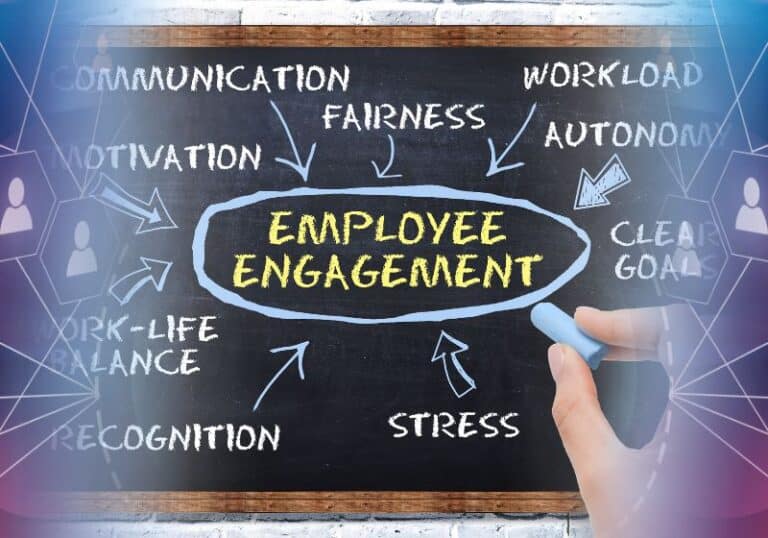Mentorship Programs – The Value of the Buddy System

Starting a new job can be a daunting undertaking. As an extension of our ‘Employee Onboarding: What to do – and what not to do’, we’re creating a series of guides on how to keep talented employees and avoid that dreaded staff turnover. For this issue, we’re taking a look at mentorship programs, what they are and how they can help new staff feel part of the team and, above all, improve that all-important ‘time to competency’.
According to Forbes, both mentors and mentees were 20% more likely to get a raise than others, while employees who received mentoring were a whopping five times more likely to get promoted than their peers1. Meanwhile, both mentors and mentees boast significantly higher retention rates than those who do not opt in to such programs – 20% and 22% higher respectively2. So, what are mentoring programs, what do they consist of, and why are they so successful?
What is a Mentoring Program?
A mentorship program is a structured and formalised relationship between a more experienced and knowledgeable individual (the mentor) and a less experienced person (the mentee or protégé). The purpose of a mentorship program is to facilitate the transfer of knowledge, skills, and guidance from the mentor to the mentee, with the goal of supporting the mentee’s personal and professional growth.
The mentor typically serves as a role model, advisor, and coach, sharing their expertise and insights to help the mentee navigate challenges, make informed decisions, and achieve their goals. This process often involves regular one-on-one meetings or interactions where the mentor offers support, feedback, and encouragement to the mentee.
The Key Characteristics of Mentorship
- A Purposeful relationship: Any mentorship programme is established with a specific objective, such as career development, skill enhancement, or personal growth; these three aims will allow the mentee to progress within the business structure while feeling valued at the same time.
- Trust and confidentiality: Trust is the essential component of an effective mentorship. The mentee should feel comfortable sharing concerns, weaknesses and aspirations, knowing full well that the mentor will keep the information confidential, private and that any opinion shared will not result in further ramifications or punishments further down the line.
- Guidance and feedback: With a deft touch and utmost sensitivity to the particular needs of their protégé, the mentor should always provide constructive criticism, a guiding hand and encouragement wherever appropriate. By doing so, the mentor can help identify strengths and weaknesses without them being cast as insurmountable problems, and, as a result, highlight areas for improvement.
- Networking opportunities: Opening doors for new employees by providing contacts, making introductions and fostering new connections is another fantastic way to make any new inductees feel as though they are part of something, and you never know what the business could stand to gain from a potential meeting of minds.
- Long-term commitment: Although mentoring programs often span over a clearly defined period, the relationship should be allowed to blossom and grow as circumstances merit. In this way, both parties have the chance to evolve and develop their skillsets alongside one another.
Ensuring That Your Mentoring Program is a Success
There are several fundamental principles which you should adhere to in order to make best use of your mentoring program. If you stick to the following guidelines, then the chances of your goals coming to fruition are exponentially higher.
Ensure clear expectations
When matching potential mentors and mentees, it is essential to prompt them to define their expected outcomes from the start. Since mentorship is a two-way relationship, both parties should carefully consider and communicate their expectations. This includes outlining the preferred type and frequency of interactions—how often they should meet, in what form and through what type of communication.
Provide sufficient training and support
A major reason for the failure of a mentorship programs is the lack of adequate resources and support. To address this, the best programs offer training or guidance to mentors and mentees prior to their initial interaction. Throughout the program, provide readily available support materials and resources so that no party is left feeling adrift. This could include best practice guidelines, short training videos and failsafe mechanisms in case the mentor begins to feel a sense of being overburdened.
Specify the program’s aim
To ensure effectiveness, it’s important to clarify the overall objective of the mentorship program. Whether it aims to help new employees acclimate to a specific area, foster innovation, or address a widespread challenge, having a clear program aim is essential for any successful program. Tailoring the program to address specific needs can further enhance its impact – for instance, a mentorship program for women may help close the gender gap in business leadership more effectively than a generic, ‘one-size-fits-all’ program.
Consider making it mandatory
If the focus is on improving poor performance, taking the mandatory route could be a viable option. The Harvard Business Review conducted a study last year that found that the full productivity benefits of mentoring programs are only realized when all employees participate3. Employees most in need of mentorship, and who could significantly impact the organization, might be less likely to voluntarily join such programs; making them mandatory alleviates such concerns.
Conclusion
By incorporating these strategies, a well-designed mentorship program can lead to significant growth, both for the individuals involved and the organization as a whole. Moreover, who doesn’t need a buddy from time to time?
For advice about implementing a mentoring/buddy program within your business, get in touch with our dedicated team of experts today on [email protected] or call 01455 444 222.
References
1. Quast, L. (October 31st 2011). How Becoming a Mentor Can Boost Your Career. https://www.forbes.com/sites/lisaquast/2011/10/31/how-becoming-a-mentor-can-boost-your-career/?sh=1e4cc3675f57
2. Saraev, N. (March 18th 2022). Statistics on Mentorship: The latest research on employee development to know. https://www.togetherplatform.com/blog/statistics-on-mentorship
3. Sandvik, J.; Saouma, R.; Seegert, N.; Stanton, C. T. (October 2022). Why Your Mentoring Program Should be Mandatory. https://hbr.org/2022/09/why-your-mentoring-program-should-be-mandatory
James Dawson
James is our resident wordsmith and has many years of experience in writing about a huge variety of topics from HR to Occupational Health and beyond. He has been published in numerous magazines and news outlets, and especially enjoys researching and analysing the current trends in the modern business world.




